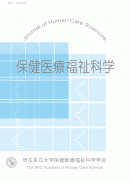[Purpose] This study aims to compare Japanese adolescent students’ anxiety, mood, and well-being before and after participating in the Restorative Dialogue “Talking Circle”. [Method] A mixed method study design was used, with each participant partaking in the “Talking Circle” three times at two-week intervals. Participants were assessed for State Anxiety and Trait Anxiety (STAI), the PERMA-profiler before and after each circles, as well as the Profile of Mood States 2 (POMS2) were assessed one week before the first and after the last Circle. [Results] The participants comprised 28 students, of which only two were boys. After each of the three times that the students participated in the Circle, the Profile of Mood States and well-being PERMA-profiler of the members significantly changed for the better. State Anxiety and Trait Anxiety were significantly lower every time. For the analysis, SPSS version 21 was employed. The qualitative analysis indicates that students felt secure and calm as they reflected and gained self-awareness. Such experiences were comforting and enjoyable. Further, their negative feelings toward others became positive. [Conclusion] Participants’ anxiety, depression-dejection, and fatigue-inertia reduced after participating three times in the Circles. Additionally, their well-being and vigor-activity increased. Participating in the Restorative Dialogue in the Talking Circle helped participants change for the betterment of their future.
View full abstract
